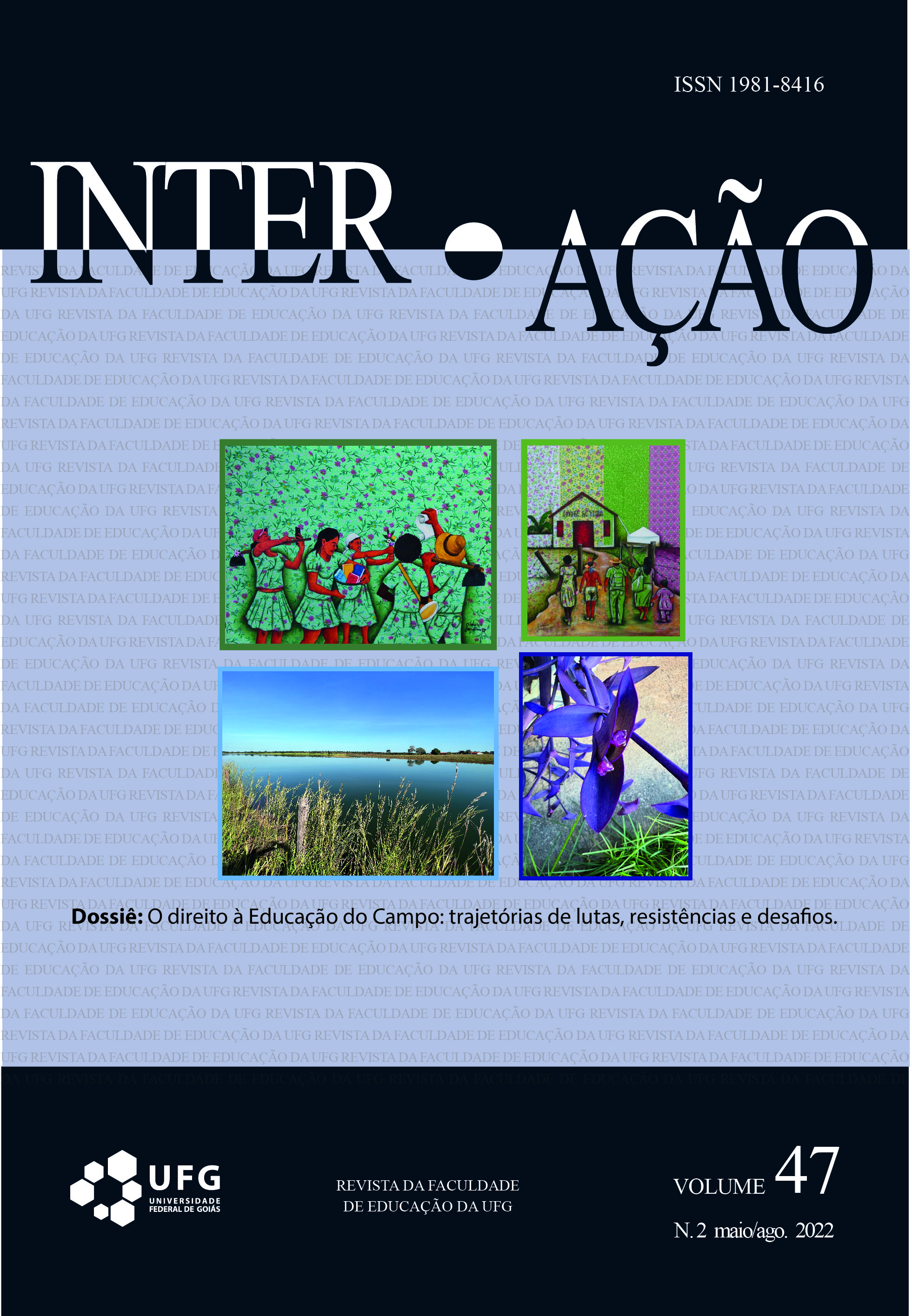UNB'S AGRARIAN RESIDENCY: PRODUCTIVE AND NECESSARY CONVERGENCE OF AGRARIAN REFORM WITH THE UNIVERSITY
DOI:
https://doi.org/10.5216/ia.v47i2.71974Abstract
This article aims to recover and recognize the importance of one of the many experiences that link agrarian reform with the university. It is about the specialization course Agrarian Residency at UNB, which took place between 2013 and 2015. The course focused on the training of 35 young people from settlements and quilombola areas of the DF/Entorno, stimulating them to investigate the productive matrices of life in the countryside, with emphasis on Agroecology, Culture, Communication and Art, Cooperation and Human Formation. Stimulated by the internal organizational process that involved the active participation of the students, the course showed a conception of university more focused on dialogue and collective construction with the communities of the territories investigated. It became evident a necessary and possible encounter between popular movements and the university in the construction of new productive matrices of life in the countryside that overcome the destructive logic of agribusiness.
KEYWORDS: Rural Education. Agrarian Residency. University. Peasant Movement.
Downloads
Published
How to Cite
Issue
Section
License
Copyright (c) 2022 Rafael Litvin Villas Bôas, Beatriz Casado Baides, Geraldo José Gasparin , Paola Masiero Pereira

This work is licensed under a Creative Commons Attribution-NonCommercial 4.0 International License.
Inter-Ação uses the Creative Commons Attribution 4.0 License for Open Access Journals (Open Archives Initiative - OAI) as the basis for the transfer of rights. Open access means making documents available on the Internet free of charge, so that users can read, download, copy, distribute, print, search, or link to the full text of documents, process them for indexing, use them as input data for software programs, or use them for any other lawful purpose, without financial, legal, or technical barriers.
Authors publishing in this journal agree to the following conditions:
1) Authors retain copyright and grant the journal the right of first publication, with the work simultaneously licensed under the Creative Commons Attribution License, which permits redistribution of the work with attribution and first publication in this journal.
2) Authors are permitted to enter into additional, separate agreements for non-exclusive distribution of the version of the work published in this journal (e.g., for publication in an institutional repository or as a book chapter), with attribution and first publication in this journal.
3) Authors are permitted and encouraged to publish and distribute their work online (e.g. in institutional repositories or on their home page) at any time before or during the editorial process, as this may generate productive changes as well as increase the impact and citation of the published work.















